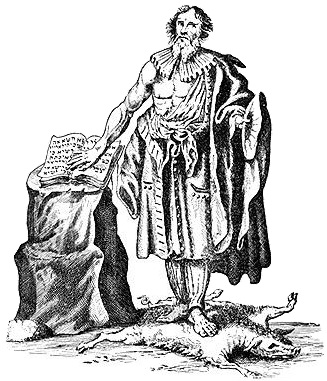
I think my education started early.
I remember sitting in the car with my mother at the age of 10, en route from my Hebrew school to … somewhere. It was the spring of 2002, height of the Second Intifada,and the rhetoric that went alongside it. I was narrating all of the things we had talked about that day, and then I said “The land is ours!”
“Whose?” my mother said.
“The Jews! Barak wanted to split up Israel and give it away.”
My mother had a sour look on her face. “And what then happens to the Arabs? Think about it; it’s theirs too.”
I haven’t forgotten this conversation. As I grew older – and more and more obsessed with history – I also began to question the orthodox dogmas of Jewish history. Were we always intent on social justice? Were we not racist? Is the West Bank really “Judaea and Samaria”? Did most Jews actually oppose apartheid? (As my South African father noted, “Everyone says they did after the fact, but the truth is most did not.”)
And thus I have had to come to terms with the more unsavory side of Jewish history, where Jews have sinned.
Do not misunderstand: I acknowledge the presence of heroes in Jewish history. We are responsible for medicinal breakthroughs and instant coffee. We produced literary geniuses such as Shai Agnon and philosophical greats such as Baruch Spinoza. Jews’ entry after the Inquisitioninto the Ottoman Empire brought a boom of prosperity to the Eastern Mediterranean. Nor do I dismiss the very real suffering our people have endured. From pogroms to the Holocaust, the Inquisition to the More Judaico, anti-Semitic graffiti to thinly-disguised anti-Semitic legislation, our trajectory as a people has not been one of constant glory.
However, glory and suffering do not write out other sins.
There are many shameful episodes in Jewish history – in which the villains were not der goyim, the cis-hetero-patriarchy, or the evil communists. Sometimes, fellow Jews have been racist. Witness the general passivity of South Africa’s Jewish community in the apartheid era. Or look at the chronic discrimination Ethiopian Jews faced upon arrival to Israel in the 1990’sand still face today. In other times, we have been classist: let’s not forget that the majority of Jews in the early Talmudic era converted to Christianity because following Jewish law required education and monetary levels that were largely unattainable. And as much as we have been a “start-up nation,” we have also produced philosophers that declared all new things to be forbiddenand writers that have sought to justify structural racism as “natural.”“Jews” and “heroes” are not always synonymous.
This sort of history is not easy to deal with.
Jews of our generation are used to dealing with a triumphalist history, as taught in Hebrew schools and day schools and our own telling. Yes, there are the tragedies, but it is mostly victories. “Look at these peoplewho are Jewish and famous,”we say. “Look at how many good things our community has done,” we say. “Look at this great state we built and how it is awesome in every way,” we claim.
But that is not how life works.
Some people have defense mechanisms to protect these ideas. Everything is hunky-dory, and these difficult histories are in their minds false, not worth discussing, or both. Others completely absorb the negative histories in tandem with other things to assume that all things Jewish are bad. Thus you get claims of “Jewish privilege.”
And then there is a middle approach. Such an approach requires recognizing that Jews are, first and foremost, humans like everyone else. We do good; we do bad. There is a healthy pride to have in one’s heritage, but there is also a healthy amount of self-criticism. Such an approach requires one to realize that our own brethren may do wrong while simultaneously recognizing that we still do “just fine” sometimes. This approach also requires one to acknowledge the existence of massive facts in the first place – be itJewish support for apartheid, the Occupation, or the Nakba.
I have learned to accept such facts – after all, to lie to one’s self is not in accordance with Jewish values. Some of this effort has involved reading narratives from “opposing” sidesor from the myriad Jewish historians who have torn apart the dogmatic narrative. Some of this effort has involved calling out fellow Jews for spreading mistruths or perpetuating racist norms. I will never forget the bullying I faced in high school after criticizing someone’s extremely offensive remarks regarding Arabs. That problem was a little more difficult to face – it could have been easier to “toe the line.” Some of this effort has also involved learning to make comparisons between Jewish history and international history. The modernization and spreadof the not-so-“dead”Hebrew language parallels the Turkish language reformsof the early 20th century, and Ashkenazi Jewish entry into racist norms in the United States was akin to that of other European-Americans in the post-World War II era. These comparisons remind us of Jews’ humanity, but also of how diverse Jewish history actually is. We are not in a vacuum of glory, after all.
Incidents such as the story I began this article with occur partly because of a communal lack of such a historical approach. What would our Jewish education look like if it pushed students to do what I did and come to terms with difficult episodes in Jewish history? Instead of boilerplate declarations like “The land is ours!” and “Israel is awesome,” we could have a more educated, more nuanced, more analytical Jewish youth. Discussions in the community could be less prone to fantastical and spirited declarations of superiority, and seek a more honest approach to problems instead. And, maybe, learning to come to terms with unsavory moments might lead more students to take an interest in Jewish history at all.
Jonathan P. Katz is a student at the University of Chicago.
